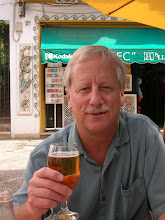I am reading Three Kings; The Rise of an American Empire in the Middle East After World War II by Lloyd C. Gardner, a professor of history at Rutgers. So far, the action is taking place during WWII. In 1941, Russia and Britain occupied Iran, although it was nowhere near the war zone. This was another episode in the contest between the Russian Empire and the British Empire over the land south of Russia, called The Great Game. Of course, everyone knew that there was a lot of oil there. This is when FDR began his negotiations with Ibn Saud for access to Saudi oil and a military base on Saudi soil. We managed to fund Saud's government during the war by using the lend-lease program, even though the Saudis were not in the war's theatre (as Presidents began creating funding mechanisms that did not need the approval of Congress). Saud proceeded slowly, partly playing the Brits against the U.S., but also because he was held personally responsible for keeping the land around the sacred sites "free from the taint of foreign occupations" (bin Laden's primary complaint...and he attacked the base there in 1996).
It is perhaps well-known that the British had no intention of relinquishing their empire after WWII and that this was opposed in principle by FDR (in the Atlantic Charter). But everyone was working behind the scenes during the war to determine what would happen in the oil-rich middle east after the War. FDR's freedom of self-determination of countries took a second seat behind practical considerations around oil and bases for air power, which was the emerging force in the capacities of armies and in transportation. And the Truman doctrine, which immediately was about aid to Turkey (under pressure from Russia) and Greece (under pressure from local communists), but was also one of the first political announcements of the Cold War (after Churchill), was also an ideological chimera behind which real political decisions took place. Anything could be justified by an appeal to the fight against "international communism."
*The Age of Disclosure*
6 hours ago




No comments:
Post a Comment